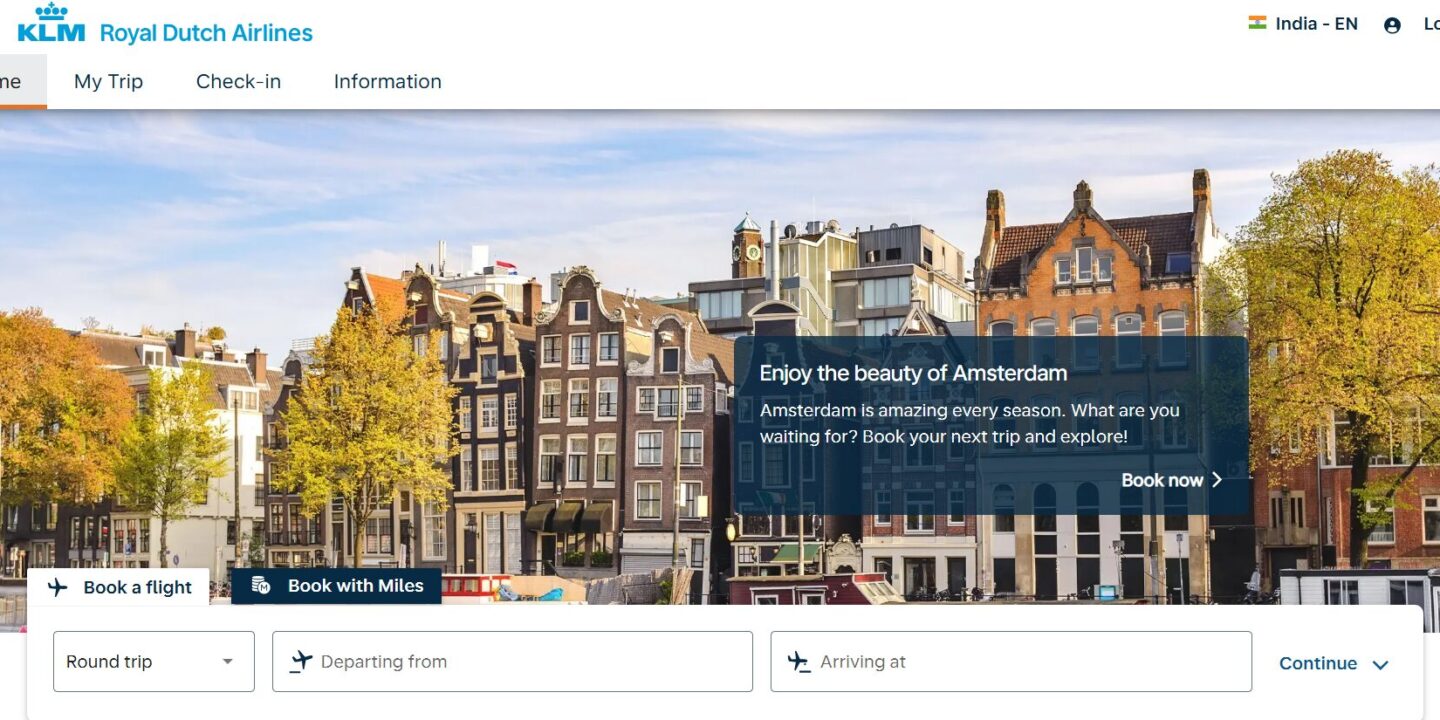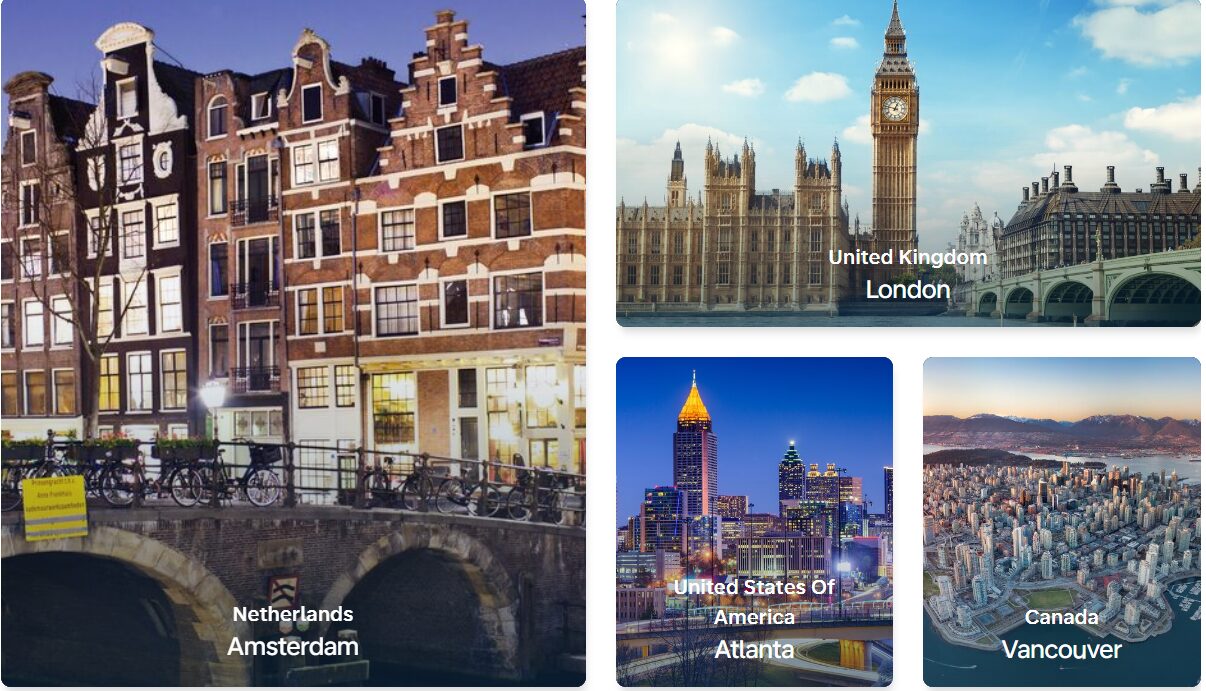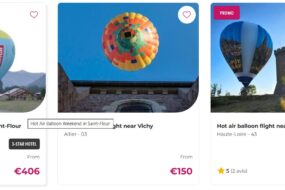
Introduction to KLM Innovations
KLM Royal Dutch Airlines has carved a niche for itself in the aviation industry, not just as a carrier but as a pioneer in sustainable travel. With climate change and environmental concerns at the forefront of global discussions, this airline is stepping up to lead by example. Through innovative practices and bold initiatives, KLM is redefining what it means to be an eco-conscious traveler. From greener fuel options to collaborations that promote sustainability, their commitment goes beyond mere words. Join us as we explore how KLM is reshaping the future of air travel while keeping our planet in mind.
Air travel has long been associated with carbon footprints and environmental concerns. However, KLM, the Dutch airline, is turning the tide. With innovative solutions and a commitment to sustainability, they are setting new standards in the aviation industry. From reducing emissions to incorporating biofuels, KLM is not just flying planes; they’re pioneering a movement towards greener skies.
As travelers become more eco-conscious, airlines must adapt or risk losing their clientele. KLM recognizes this shift and embraces it wholeheartedly. Their efforts span various initiatives aimed at minimizing environmental impact while still providing exceptional service to passengers.
Join us as we delve into how KLM Innovations are reshaping sustainable travel and leading by example in an industry ripe for change. It’s time to explore how this iconic airline is making strides toward a brighter future for air travel!
Sustainable Initiatives and Partnerships
KLM has embraced a proactive approach to sustainability through various innovative initiatives. The airline collaborates with numerous partners, focusing on reducing carbon emissions across its operations.
One standout partnership is with the Biofuels industry. KLM invests in sustainable aviation fuel (SAF), which significantly cuts greenhouse gas emissions compared to traditional fuels. This commitment demonstrates their dedication to cleaner flying experiences.
Additionally, KLM teams up with universities and research institutions. These collaborations aim to explore new technologies that enhance energy efficiency and minimize waste.
The airline also promotes circular economy principles within its operations. By reusing materials and minimizing single-use plastics, it actively contributes to environmental conservation efforts worldwide.
Through these partnerships and initiatives, KLM sets an example for others in the travel sector. They are paving the way for a more sustainable future while inspiring other companies to follow suit.
KLM is making significant strides toward a more sustainable future, showcasing how innovation can lead to meaningful change. One of their key initiatives includes investing in sustainable aviation fuel (SAF). This alternative reduces carbon emissions significantly compared to traditional jet fuels. KLM has committed to using SAF for all its flights by 2030, pushing the industry towards greener practices.
Beyond fuel innovations, KLM has partnered with various organizations and startups focused on sustainability. Collaborations with firms specializing in waste reduction and recycling are changing how airlines operate. These partnerships aim not only to lower the airline’s environmental impact but also encourage others in the travel sector to adopt similar strategies.
Furthermore, KLM’s commitment extends beyond just its flights. They actively engage passengers through initiatives like CO2 compensation programs, encouraging travelers to offset their carbon footprints directly when booking tickets.
As part of a broader effort, KLM is invested in exploring electric aircraft technology and other groundbreaking solutions that promise cleaner air travel experiences for future generations. Each step taken reflects a dedication not just to flying but doing so responsibly.
The Dutch airline serves as an inspiring example within the aviation industry. Their innovative approaches highlight what’s possible when companies commit themselves fully to sustainability while delivering quality service. The journey toward eco-friendly travel may be challenging; however, it’s evident that KLM is paving the way forward with unwavering resolve.
Eco-Friendly Fleet and Technology
KLM is making waves with its commitment to an eco-friendly fleet. The airline has invested heavily in modernizing its aircraft, focusing on efficiency and lower emissions.
One standout feature is the use of sustainable aviation fuel (SAF). This renewable energy source reduces carbon footprint significantly compared to traditional jet fuels. KLM aims to increase SAF usage across its operations, setting a benchmark for others in the industry.
In addition, the airline employs advanced technology like winglets and lighter materials that enhance aerodynamics. These innovations lead to improved fuel efficiency and reduced noise pollution during flights.
Moreover, KLM collaborates with manufacturers to explore electric propulsion systems. While still in development phases, this could revolutionize short-haul travel soon.
The integration of these technologies not only benefits the environment but also positions KLM as a pioneer in sustainable aviation practices within the competitive travel landscape.
KLM is making significant strides with its eco-friendly fleet and innovative technology. The airline has invested heavily in sustainable aircraft designs and fuel efficiency. Their commitment to reducing carbon emissions is evident in their operations.
The fleet includes modern planes like the Boeing 787 Dreamliner, which uses less fuel while offering enhanced passenger comfort. KLM also explores alternative fuels made from waste materials, further minimizing environmental impact.
Innovations such as electric taxiing systems are being tested to reduce fuel consumption during ground operations. Coupled with a focus on operational efficiency, these technological advancements position KLM as a leader in green aviation.
By continually enhancing their fleet and embracing cutting-edge technology, KLM not only sets an example for other airlines but also takes meaningful steps toward a more sustainable future for travel.
Impact on Environment and Travel Industry
KLM’s commitment to sustainability is reshaping the travel industry. By prioritizing eco-friendly practices, they set a benchmark for other airlines to follow. Their initiatives encourage a shift towards greener travel options.
The airline’s focus on reducing carbon emissions has sparked conversation among travelers and businesses alike. This awareness drives demand for sustainable air travel solutions across the globe.
Moreover, KLM’s efforts have inspired collaborations with various organizations dedicated to environmental causes. These partnerships amplify their impact, fostering innovation in sustainable aviation technology.
As more airlines adopt similar measures, we see a gradual transformation within the entire sector. The ripple effect of KLM’s leadership may well lead to an industry-wide embrace of sustainability standards that benefit both customers and the planet.

Customer Response and Feedback
KLM’s sustainable initiatives have sparked a wave of positive customer feedback. Passengers appreciate the airline’s commitment to eco-friendliness. Many express pride in flying with an airline that prioritizes the environment.
Social media platforms are buzzing with supportive comments. Travelers share their experiences, often highlighting KLM’s innovative measures like carbon offsetting and reducing single-use plastics.
Surveys indicate that customers value transparency regarding sustainability efforts. They want to know how their choices impact the planet. KLM has successfully engaged passengers through informative campaigns showcasing its green strategies.
Loyalty programs have also seen enhancements, rewarding travelers who choose greener options. This has fostered a community eager to support sustainable travel practices.
The dialogue between KLM and its customers continues to evolve, shaping future offerings based on real feedback while reinforcing shared values around environmental responsibility.
Future Plans and Goals for Sustainability
KLM is not stopping at its current achievements. The airline has ambitious plans to enhance its sustainability efforts further. A significant goal is achieving net-zero emissions by 2050.
To reach this target, KLM aims to invest heavily in sustainable aviation fuel (SAF). This eco-friendly alternative significantly reduces carbon footprints compared to traditional jet fuels. Partnerships with biofuel producers are already underway.
Innovation also plays a key role in future strategies. KLM intends to develop more efficient flight routes and optimize operations through advanced technology. Digital tools will help minimize delays and conserve energy during flights.
Additionally, the airline plans educational initiatives for passengers about sustainable travel choices. Engaging customers can create a community committed to environmental responsibility.
KLM envisions collaborating with other airlines and stakeholders as well, fostering industry-wide changes that prioritize sustainability over profit alone.
Conclusion: The Importance of Leading by Example in the Travel Industry
KLM Innovations demonstrates that sustainability in travel isn’t just a trend; it’s a necessity. By prioritizing eco-friendly initiatives, they set an example for other airlines to follow. Their commitment to reducing carbon emissions and investing in new technologies shows that the industry can evolve without compromising on service or experience.
The partnerships KLM has forged with various organizations underscore their dedication to making meaningful changes in how we think about air travel. This collaborative approach not only amplifies their impact but also encourages others within the sector to join this crucial movement toward sustainability.
As consumers become more conscious of their environmental footprint, the demand for responsible travel options will continue to rise. KLM’s proactive stance positions them as leaders in meeting these expectations, paving the way for future advancements while inspiring both travelers and competitors alike.
Leading by example is vital in today’s world. It challenges others to rethink traditional practices and embrace greener alternatives. As KLM continues its journey towards sustainable aviation, it invites us all—airlines, businesses, and customers—to participate actively in this essential transformation of our industry.









